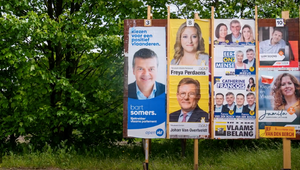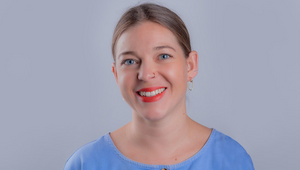
Defining Award-Worthy: Q&A with MRM London’s CCO Nicky Bullard

Chairwoman and chief creative officer of MRM UK, Nicky Bullard is the first female and creative chair of a UK marketing agency. A huge champion of the customer relationship and direct discipline, she has judged and chaired almost every major award show across the globe including Cannes Lions, Creative Circle, D&AD, DMAs, Effie Awards and The Caples.
Previously chief creative officer at LIDA, Nicky jumped straight into Campaign’s top 10 Direct CDs within just a year at the agency’s creative helm. She helped LIDA win hundreds of awards, including Campaign’s Agency of the Year twice, and runners-up three times. At MRM, Nicky has led the agency to win awards in shows ranging from Cannes Lions g to the Drum B2B Awards.
Speaking to LBB ahead of this year’s Caples Awards, Nicky tells us about the spectrum of winning work she’d like to see, what makes her insanely jealous, and how more opinions may help you land an award-winning idea...
Q> You have judged some of the biggest award shows in the industry - what have you learnt from your time on judging panels?
Nicky Bullard> It’s weird talking about this now during Covid. And I’ve been struggling to even to get my head into that awards space - to remember those days before when awarding great creative work felt so important. But, as you asked, I shall rewind my brain!
When I first started judging, it could be daunting, especially because the output and what wins is a reflection of your individual judgement. But everyone’s opinion is valid, and once you get the hang of it you all feel part of the same band. It becomes a really wonderful and rewarding experience. Often however, you get a contrarian in the group, but I wonder now, now that we are going through the greatest leveller of our lives, if egos will disappear from the judging room for ever more.
Q> Has your opinion about what ‘award-winning’ means changed over the years?
Nicky> What I find really interesting is the story behind how a piece of work was made; how did they convince the client and how did they get that message out there? It becomes more than just a beautiful piece of work. It’s work with purpose.
Q> Why do you think it is so important to award great creative work?
Nicky> Ok, let’s just imagine I’m answering this before the pandemic. The work in award shows represents how we communicate as human beings and our cultural differences. It’s fascinating. It also sets that bar for others to aspire to. It celebrates work that has a profound impact.
Q> You are Jury President for the Caples, what sort of work are you hoping to see this year?
Nicky> I want to see stuff that’s really smart and absolutely brand relevant - not just work that’s cool. I’d like to see both big ideas and small ideas winning. Something ingenious could have the smallest execution or smallest print line. I’d like to see a spectrum. I want to see stuff that makes me feel really jealous. Work I wish I’d done myself and that I’m excited to talk about. And then there’s what I don’t want to see - work that’s jumped on an issue to win awards. It’s not enough. And it’s even more tasteless right now.
Q> You mention on your Caples profile that you want to see work that makes you feel something. What are some of your favourite examples of this in action?
Nicky> Last year I was President of the Direct Jury at the Cannes Lions Festival, and I just thought Burger King’s ‘Burn That Ad’ was really clever and so much work went into it. It made me jealous and inspired me. It was funny too. The brand work is consistently great and disruptive but in a playful way.
Q> Do you think that most ads neglect the spectrum of emotions available?
Nicky> When judging you get a lot of pulling at heartstrings but I did notice that last year that wasn’t as much - not in direct anyway. A couple of examples, that I’ll confess, are from my own network:
I loved IKEA’s ‘ThisAbles’. It was emotional in so many ways. It was about inclusivity, it thought about parts of society that are ignored - furniture for people with various disabilities is usually not as sleek or elegant which sends the message that people with disabilities are not worth it. IKEA is a democratic brand and so they changed that and did something about it without comprising on aesthetics or functionality. The idea was carried out in a wonderful, celebratory and solution-driven way.
In the same way, Microsoft’s adaptive controller work was really emotional but again it’s joyful at the same time. You want a range of work where you’re laughing out loud one minute, then trying to hold it together because you’re going to burst into tears. Well I do anyway!
Q> You were an influential part of bringing back the Courageous Client Award - why was it so important to include this award?
Nicky> Years ago when I judged The Caples in New York, they had the Courageous Client Award. It celebrates risky big ideas. For example, Burger King’s ‘Whopper Detour’ was originally just going to be the usual voucher idea in order to encourage more sales. It didn’t work as well as they’d hoped so the client went with the audacious idea of the detour and we all know how successful that ended up being. And we are in a moment in time when clients are being more courageous than ever, so it’s an award that’s more important than ever.
Q> What advice do you have for people who are striving to win more awards with their ideas?
Nicky> If you’ve got a great idea, make sure you clearly communicate it. That’s one of the most annoying things when you look at a case study film or award form. We as judges do read the forms so you better know the criteria of each question and answer it accurately! There might be details you didn’t have time to include in the case study, that can be put in the form.
Also please remember judges are human! Do appeal to our emotions. But you won’t win unless the work’s great in the first place and that’s about really understanding your audience, looking at culture and knowing your brand inside-out. And that, most importantly, has meaning, and purpose.










